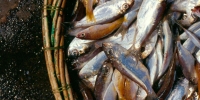
PHOTO: AAP/CAROLINE BERDON
Dividing up the Timor Sea
It is time for Timorese officials to bring a more conciliatory tone and for Australia to make an authentic effort to bring economic inclusiveness to the region, writes Andrea Rodriguez Soriano.
On 9 January the governments of Timor-Leste and Australia made a joint statement about the Timorese Government’s desire to terminate the 2006 Treaty on Certain Maritime Arrangements in the Timor Sea (CMATS) as part of the ongoing conciliation process currently in place under the United Nations Convention on the Law of the Sea (UNCLOS). The treaty divided income from the Greater Sunrise gas and condensate field located in the Australian seabed equally between the two countries. Timor-Leste’s claim is that the field actually sits in its own territorial waters.
This is a welcome development for Australia’s relationship with Timor-Leste and opens an opportunity to re-engage in a friendlier and more equitable maritime boundary delimitation negotiation. More importantly, it opens the possibility of a natural resources agreement that could provide Timor-Leste with medium-term viability as a state considering the current depletion of the Timorese Petroleum Fund, which holds the vast majority of the government’s available revenue.
However, negotiations could potentially be hindered by what has become a tainted public debate on both sides. In an era of post-truth, where the same facts can support different positions, the Timorese Government initiated a very public campaign to mobilise the Timorese and Australian civil societies in support of its legal bid to the United Nations Commission for a greater share of royalty income from the field. This campaign found its grassroots in a powerful message: the right of the Timorese to independence.
In this narrative, Timor-Leste’s independence is yet to be fully realised and Australia is portrayed as an invader of its territory and a violator of its sovereignty. This runs contrary to Australian support for independence by having led the International Force for East Timor (INTERFET) to resolve the humanitarian and security crisis in the country in 1999. Moreover, Australia’s previous negotiations with the Timorese Government were unbalanced considering its weakness as a poor, young nation alongside the greater economic and political power of its neighbour. Claims that the Australian Secret Intelligence Service spied on Timorese negotiators have also helped to ignite this campaign.
Public pressure may have assisted in the termination of the CMATS and the beginning of new negotiations. However, the continuation of the conciliation process with a more conciliatory Australian position also requires a less confrontational Timorese approach. In order to extend its maritime boundaries towards the east, beyond the Joint Petroleum Development Area, the Timorese Government needs to convince both Australia and Indonesia to renegotiate another agreement. The delimitation of seabed boundaries dates back to the 1972 Agreement, which Portugal declined to be part of leaving its colony out of the negotiation. A renegotiated agreement might allow East Timor to obtain access to the majority of the Greater Sunrise deposit that would potentially prevent the rapidly nearing exhaustion of its petroleum fund.
If Dili’s civic campaign continues the ‘independence struggle’ argument, it would also not sit well with Jakarta given the bilateral historical relationship and the situation in West Papua. This is particularly the case in the context of the increased nationalism that is visible, for example, in recent anti-Chinese and anti-Australian remarks made by Indonesia’s Commander of the Armed Forces General Gatot Nurmantyo.
Instead, Timor-Leste should approach the negotiation based on four principles that can lean more positively on the Australian perspective: social justice (a fair go), economic development, national security and regional stability.
Giving Timor-Leste a fair go in receiving a more equitable share of the gas and oil fields would give Australia greater international and regional credibility. Timorese officials and their main negotiator, Xanana Gusmao, have pursued the independence struggle position but they could benefit from softening the discourse. The recent joint statement opens the possibility for Timor-Leste to break away from its sovereignty argument and look for a more cooperative position with Australia and Indonesia. Concurrently, Australia needs to recognise the strength of public opinion in both countries and focus its efforts on concluding a successful conciliation process in order to preserve its regional reputation as a champion of development and human rights.
One of Australia’s priorities in the Southeast Asian region is to ensure inclusive economic development. It is important to ensure the Greater Sunrise field genuinely improves conditions in Timor-Leste. The Dili government has wanted to develop a processing plant in its territory that would bring major technological development to the country. Nevertheless, if a submarine pipeline is technically and economically unviable, as claimed by field developer Woodside, an alternative could be to educate Timorese professionals to be included as part of the floating plant’s personnel. Other support services could also be set up in Dili as part of the deal.
Australia’s major strategic concern in the region is currently the South China Sea disputes. With a new and unpredictable American government, it will be important to bring China to the negotiating table and to strengthen the power of international institutions such as UNCLOS to resolve these challenges. A continuing maritime dispute with Timor-Leste will only become a detriment to the prospects for China and other regional powers respecting a rules-based order. It could even encourage other countries to take nationalist positions such as Dili’s ‘independence’ campaign.
As that campaign has gathered support for Timor’s ‘independence’ argument, it could incite more extreme positions at future negotiations, making them much less likely to succeed. It is time for Timorese officials to bring a more conciliatory tone and for Australia to make an authentic effort to bring economic inclusiveness to the region. This would set an example to our main trading partner, China, and Australia’s main ally, America, for how to resolve disputes constructively and ensure stability in contested seas.
This article was first published by Policy Forum.net, the website of the Asia and the Pacific Policy Society and Crawford School. https://www.policyforum.net/dividing-timor-sea/
Updated: 18 July 2024/Responsible Officer: Crawford Engagement/Page Contact: CAP Web Team













